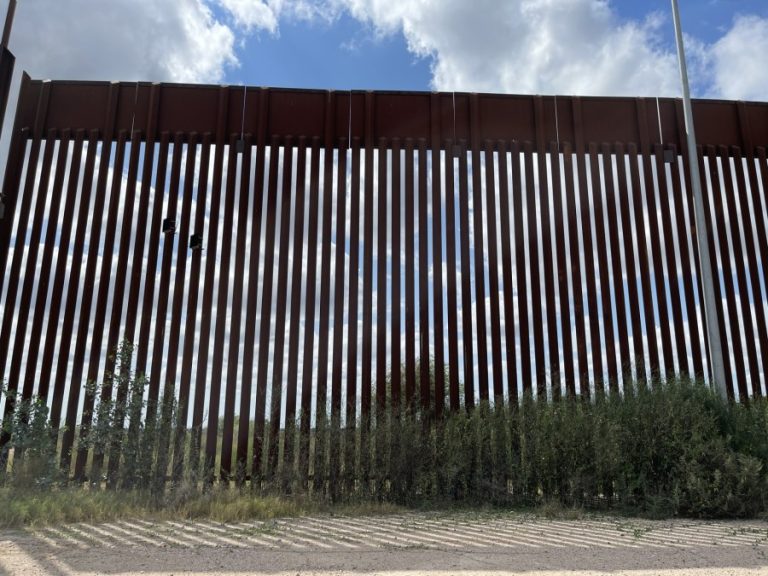McALLEN, Texas (Border Report) — A statewide proposition on Tuesday’s ballot asks Texas voters to approve exempting property taxes on land where border barrier structures have been put up.
If passed, Proposition 17 would amend the state’s constitution so that property owners whose land is used for border barrier — constructed either by the state or federal government — would not have to pay taxes on the massive structures.
If approved by voters, a constitutional amendment would exempt border barrier infrastructure, like this border wall in Los Indios, Texas, from property taxes. (Sandra Sanchez/Border Report File Photo)
Proposition 17 reads: “The constitutional amendment to authorize the legislature to provide for an exemption from ad valorem taxation of the amount of the market value of real property located in a county that borders the United Mexican States that arises from the installation or construction on the property of border security infrastructure and related improvements.”
If passed, it would prevent property values from increasing due to border barrier infrastructure or improvements in Texas counties that border Mexico.
It “would establish that a person is entitled to an exemption from property tax in the amount of appraised value of real property that arises from the installation or construction of an improvement under a qualified border security infrastructure agreement or on land subject to a recorded easement granted by the property owner to the State of Texas or the United States for border security purposes,” according to a May 17 memo by the Legislative Budget Board in Austin.
A loss in tax assessment could cost school financial districts, according to the memo, which says: “these costs are not expected to be significant.”
But it could result in higher taxes in cities and counties.
“If cities, counties, and special districts did not adopt higher rates, local levies would be reduced. If those jurisdictions adopted higher tax rates, the initial revenue loss from the exemption would be offset by increased tax levies from owners of nonexempt property and slightly reduced tax savings from owners of exempt property,” the memo says.
The Texas Comptroller of Public Accounts reports current border infrastructure construction projects throughout South Texas in the counties of Cameron, Starr, Zapata, Webb, Maverick, and Val Verde, which “could be subject to the exemption,” the Legislative Budget Board says.
Tommy Fisher, CEO of Fisher Sand & Gravel Company, shows newly poured concrete at his privately built border wall on Jan. 15, 2020. The wall was built on private farmlands south of Mission, Texas. (Sandra Sanchez/Border Report File Photo)
The issue was first raised in Texas in early 2020 when South Dakota contractor Tommy Fisher, CEO of Fisher Sand & Gravel Company, built a $42 million private border wall on a sliver of land that had been owned by a Rio Grande Valley farmer in Mission, Texas. The border wall was mostly financed by Fisher but over $1 million came from funds crowdsourced through the controversial group We Build the Wall.
Questions, at the time, surfaced over whether the farm land would be taxed at a higher rate based on the $42 million structural improvement. However, Hidalgo County did not tax it.
The proposition is one of 17 on the statewide ballot.
On Wednesday, Texas Secretary of State Jane Nelson said during the first week of early voting, there had been 561,819 ballots cast in person and 23,510 votes by mail.
Early voting began Oct. 20 and ends Friday. Election Day is Tuesday.
Sandra Sanchez can be reached at SSanchez@BorderReport.com.

